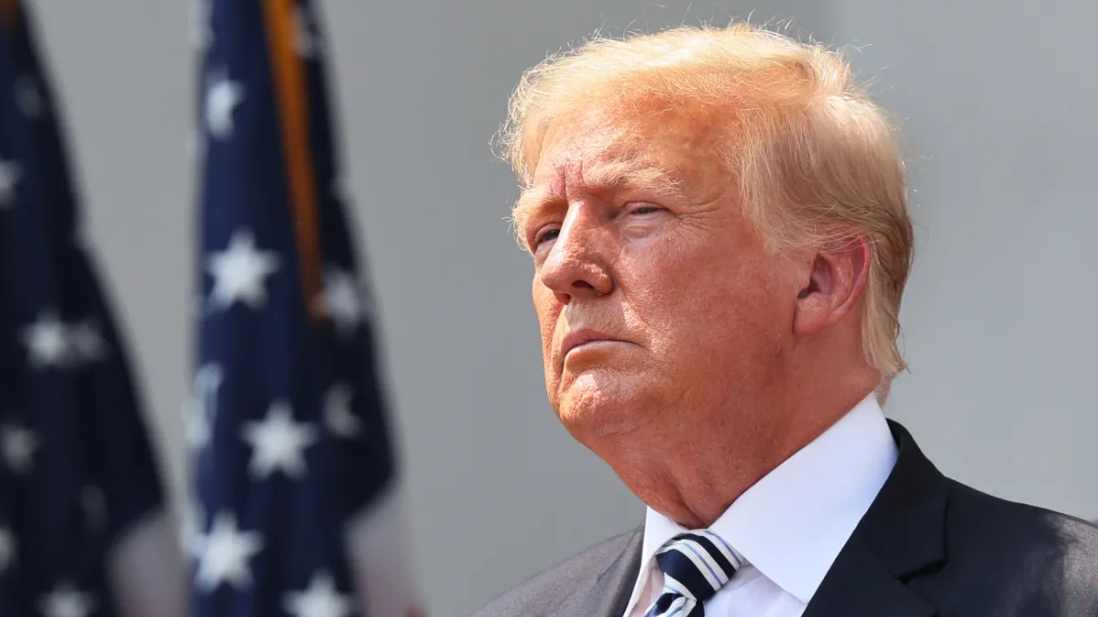live Middle East conflict: Key developments on Wednesday as U.S. submarine sinks Iranian warship
A torpedo from a U.S. submarine sunk an Iranian warship off the coast of Sri Lanka, U.S. Secretary of Defense, Pete Hegseth told reporters as ...

President Donald Trump has delayed the implementation of 25% tariffs on automobile imports from Canada and Mexico for one month, following requests from executives at General Motors, Ford, and Stellantis.
The reprieve is expected to provide automakers until April 2 to begin shifting offshore production to facilities within the United States.
The decision comes less than two days after the tariffs were announced—a measure that reimposes duties on goods previously exempted under the North American trade agreement, often referred to as NAFTA 2.0. Under the terms of the agreement, automakers that comply with the United States-Mexico-Canada Agreement (USMCA) had previously enjoyed duty-free access.
The Big Three automakers operate complex supply chains with manufacturing facilities located in Canada and Mexico. For instance, General Motors produces its Chevy Equinox in both countries, while Ford’s Lincoln Nautilus SUVs and Stellantis’ Dodge Chargers are made in Ontario. Numerous automotive suppliers also rely on plants in the region.
Industry analysts warn that the tariffs could lead to a significant increase in vehicle sticker prices—potentially up to $12,000—at a time when car prices are already near historic highs. Jeff Schott, a senior fellow at the Peterson Institute for International Economics, noted that higher prices could dampen consumer demand and leave dealers with costly unsold inventory.
During an address to Congress on Tuesday, President Trump urged manufacturers to move production onshore. White House press secretary Karoline Leavitt stated at a briefing that the administration expects GM, Ford, and Stellantis to shift their operations to the United States before the tariffs are fully implemented at the end of the month. “He told them that they should get on it,” Leavitt added.
However, challenges remain. Ford CEO Jim Farley acknowledged at a recent investor call that the company does not have excess capacity at its existing plants to easily accommodate such a shift. Farley warned that while Ford could absorb the tariffs in the short term, prolonged duties could inflict unprecedented damage on the U.S. automotive industry.
Data from Edmunds.com indicate that, through February, nearly half of all new vehicles sold in the U.S. were manufactured domestically, with 17.4% built in Mexico and 7.4% in Canada.
In a statement, Ford reiterated its commitment to U.S. manufacturing: “Since President Trump’s successful USMCA was signed, Ford has invested billions in the United States and committed to billions more in the future to both invest in American workers and ensure all of our vehicles comply with USMCA. We will continue to have a healthy and candid dialogue with the Administration to help achieve a bright future for our industry and U.S. manufacturing.”
U.S. President Donald Trump said the U.S. military has enough stockpiled weapons to fight wars "forever"; in a social media post late on Monday. The remarks came hours before conflict in Iran and the Middle East entered its fourth day.
U.S. first lady, Melania Trump chaired a UN Security Council meeting on children and education in conflict on Monday (2 March), a move criticised by Iran as hypocritical following U.S. and Israeli strikes that triggered a UN warning about risks to children.
A torpedo from a U.S. submarine sunk an Iranian warship off the coast of Sri Lanka, U.S. Secretary of Defense, Pete Hegseth told reporters as the Iranian conflcit entered its fifth day on Wednesday.
The U.S. embassy in Riyadh was hit by two drones resulting in a limited fire and some material damage, the kingdom's defence ministry said in a post on X on Tuesday, citing an initial assessment.
Shahid Motahari Sub-Speciality Hospital in northern Tehran and parts of the Golestan Palace were bombed on day two of the U.S.‑Israel strikes. AnewZ Touraj Shiralilou is in Iran's capital city and said that the facility was flattened in an airstrike.
China’s top leadership has unveiled a new push to turn advanced technologies into large-scale industrial priorities as part of the country’s upcoming 15th Five-Year Plan, which will guide economic and social development from 2026 to 2030.
The European Commission sees no immediate impact on the European Union's security of oil supply from the escalating conflict in the Middle East, it said in an email to EU governments, seen by Reuters on Monday (2 March).
Paramount Skydance emerged as the winner in a months-long battle to acquire Warner Bros Discovery after streaming giant Netflix on Thursday refused to raise its bid for the storied Hollywood studio.
Global debt surged to a record $348.3 trillion at the end of 2025, after nearly $29 trillion was added over the year, marking the fastest annual increase since the pandemic, according to the Institute of International Finance (IIF) report released on Wednesday.
Millions of Colombian roses have arrived in the United States just in time for Valentine’s Day, keeping the country on track as the world’s second-largest flower exporter. Between 15 January and 9 February, Colombia shipped roughly 65,000 tons of fresh-cut blooms.
You can download the AnewZ application from Play Store and the App Store.

What is your opinion on this topic?
Leave the first comment